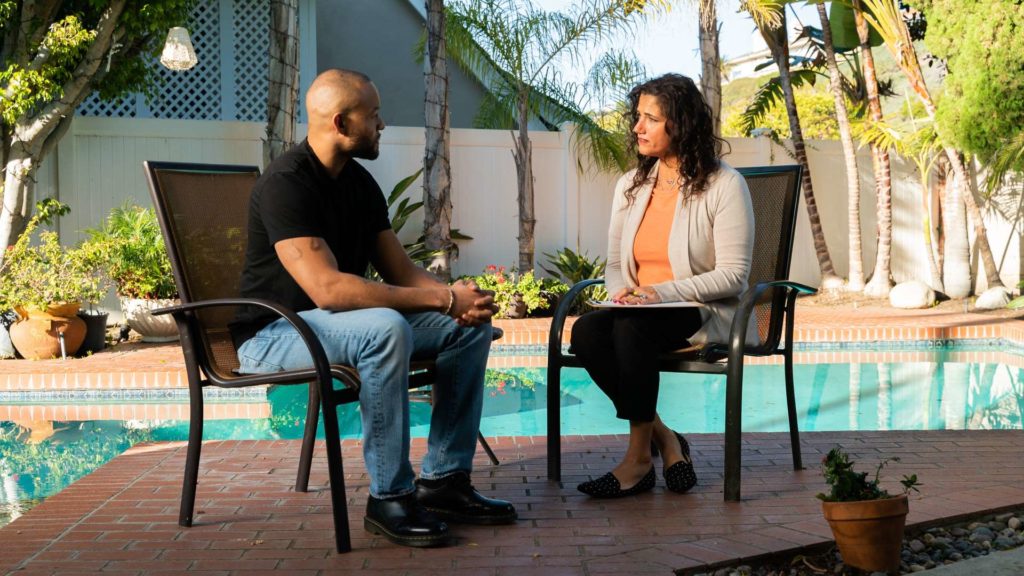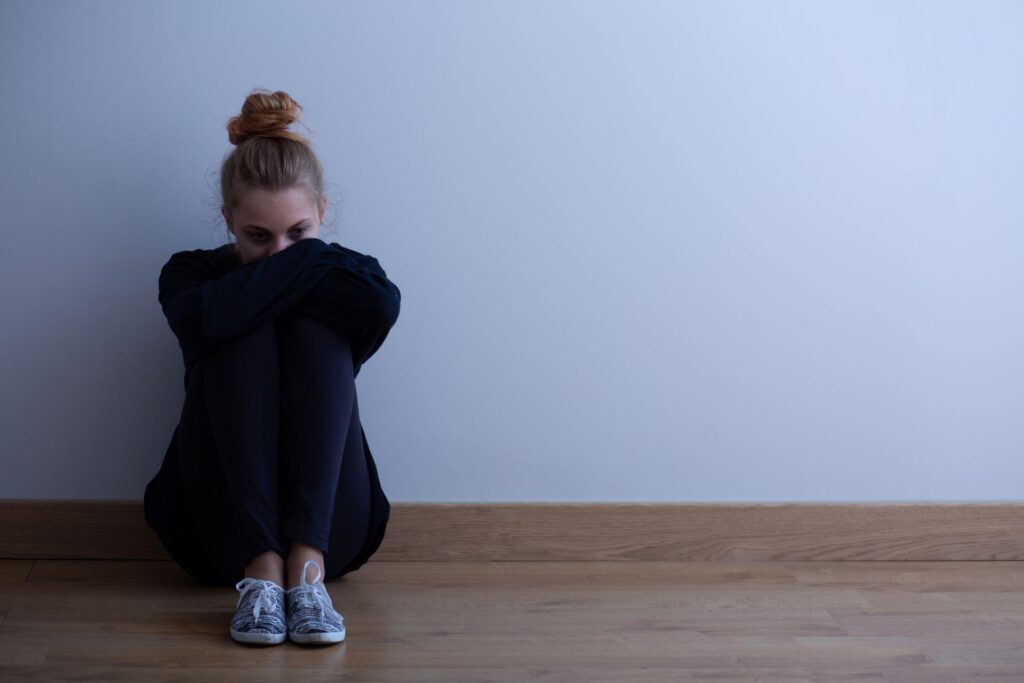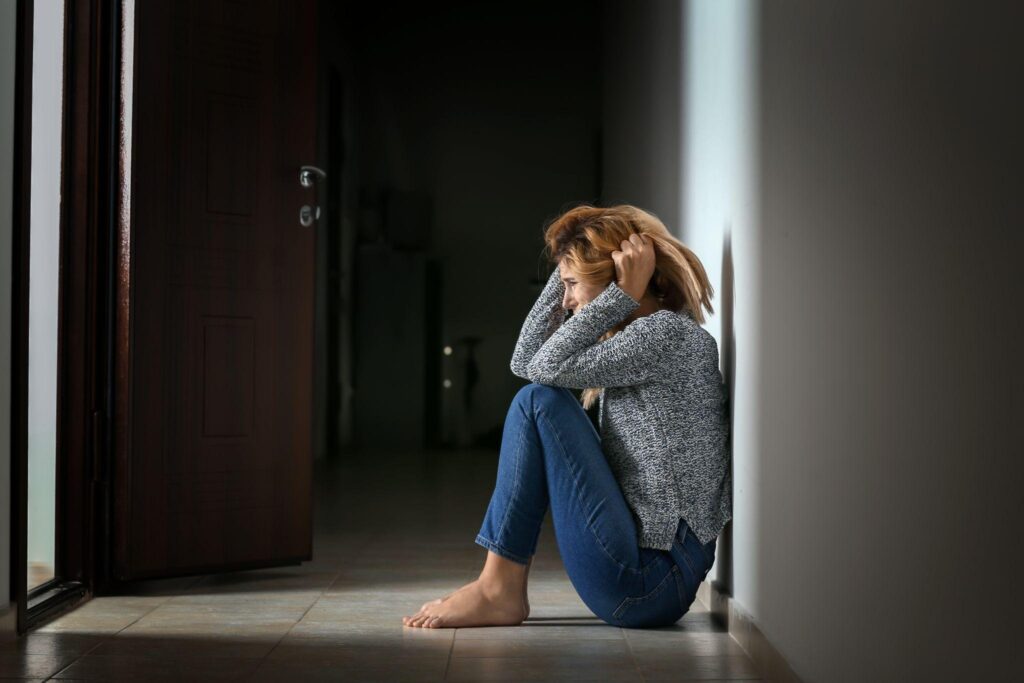At Adelante Recovery Centers in Newport Beach, CA, we believe in providing the best possible care and treatment services for all of our clients. Until you receive the help you need, it’s often difficult to reach the full mental health and addiction-free lifestyle you so desperately crave. Whether you are the one suffering from drug and alcohol addiction or have had to watch a loved one succumb to severe substance use disorders, there is no torture like being unable to break the cycle.
This becomes especially difficult when the individual is also suffering from a mental disorder. When this is the case, it is even harder for people to separate reality from the illusions that are sometimes created by chronic substance abuse. That’s where dual diagnosis treatment comes in.


When an individual is both addicted to substances and suffering from mental health issues, the combination is termed “dual diagnosis.” As the name suggests, there are two separate issues going on. One the one hand, the person is dealing with a variety of mental health issues, which could include:
… or some combination of the above mental health disorders. At the same time, the individual is also suffering from the many side effects of chronic substance abuse, which include:
… and others. Because the two are so distinct, they each need their own addiction treatment plans.


Adding to the problem is the fact that each disorder contributes significantly to the other. Mental health issues are extremely distressing, causing sleep disorders, trouble working, problems with friends, phobias, fear and a host of other unpleasant factors. Many people self-medicate in order to control these feelings stemming from their mental health problems. Alcohol and drugs can cause euphoria where formerly there was depression, calm where formerly only anxiety existed, and so on.
At the same time, substance abuse strengthens the power of mental health disorders, making it harder to determine reality, fight feelings of anxiety and depression, and live a normal life.
For people facing feelings of deep sadness and hopelessness, drugs or alcohol can seem like an escape. Over time, the side effects and the worsening cycle of addiction only add to the despair of the mental illness. It’s also true that major depressive disorder is often the underlying mental health problem behind alcohol and drug addiction.


Anxiety gears up the central nervous system, leaving a person feeling on edge. Depressants like alcohol may offer temporary relief at a terrible cost. A Substance abuse disorder often worsens mental health symptoms, leading to further use that doesn’t address the anxiety disorder.
ADHD involves areas of increased and reduced brain activity, and stimulants like Adderall are usually safe and effective for helping to both focus and reduce impulsivity. However, stimulants are also very addictive when misused, whether it’s a prescription or an illegal drug like cocaine. ADHD symptoms like impulsivity may also be a risk factor for substance use.


Untreated bipolar disorder can be exhausting. Drugs and alcohol substance abuse may initially be coping mechanisms to help a person feel more in charge of their moods. However, they destabilize things further, making manic and depressive mood swings worse.
Post-traumatic stress disorder and other trauma are common co-occurring disorders with substance abuse. Haunted by traumatic memories and intense anxiety, a person may turn to substances to numb the feelings. Drugs and alcohol worsen these mental illnesses, and recovery is difficult if the underlying trauma isn’t healed.


Even if there isn’t a clear co-occurring disorder, stress can play a role in developing and recovering from addiction. If the person isn’t given new tools to relieve and manage stress, they may be at higher risk of relapse.
Dual disorder treatment, therefore, is far more effective than any treatment program that relies solely on addressing one or the other problem. With a treatment program that addresses both at once, the individual can both begin working through the mental health issues while simultaneously addressing the cravings, urges, impulsivity, and other factors that come with addiction.
Treatment techniques may include individual therapy, group therapy, withdrawal medication, 12-step programs, and medical detox. Often, our professional therapists will prescribe a combination of techniques to ensure full coverage and the best chance of recovery.


Here’s how mental health addiction programs work at our dual diagnosis treatment centers in southern California:
At our Newport Beach rehab centers, our qualified mental health professionals and addiction specialists are passionate about helping you thrive. We know that a substance use disorder is just one part of the picture, and we create customized, whole-person treatment plans to address your individual challenges. With our unique approach, evidence-based therapies like cognitive behavioral therapy (CBT), and safe medication-assisted treatment, our rehab facilities in Orange County help people make lasting change.


At Adelante Recovery Centers, our dual diagnosis treatment programs are effective and compassionate, bringing many patients out of the darkness of substance use disorders addiction and mental disorders and into the light of full, productive, and loving lives.
If you or a loved one wants to focus on personal recovery in a patient-centered setting, Adelante can help. Our substance abuse treatment centers are conveniently located, invite family participation, and provide a full range of treatment options to ensure the highest level of success. Our clients routinely leave our drug and alcohol rehab centers with the ability to live meaningfully and withstand the challenges of everyday living in the future.
If you or a loved one are in need of help with addiction, contact us today. Our professional and friendly addiction specialists are able to answer your questions and get things moving in the right direction.
"*" indicates required fields
Adelante Recovery Center is here to help those battling drug and alcohol addiction. We are located in beautiful southern California and welcome those from across the country.
49 Montecito Dr, Corona Del Mar, CA 92625
Phone: (949) 978-0797
Fax: (951) 406-0013
Open 24/7
Adelante Recovery Center is here to help those battling drug and alcohol addiction. We are located in beautiful southern California and welcome those from across the country.
Adelante Recovery Center
49 Montecito Dr, Corona Del Mar, CA 92625
Phone: (949) 978-0797 Fax: (951) 406-0013 Open 24/7